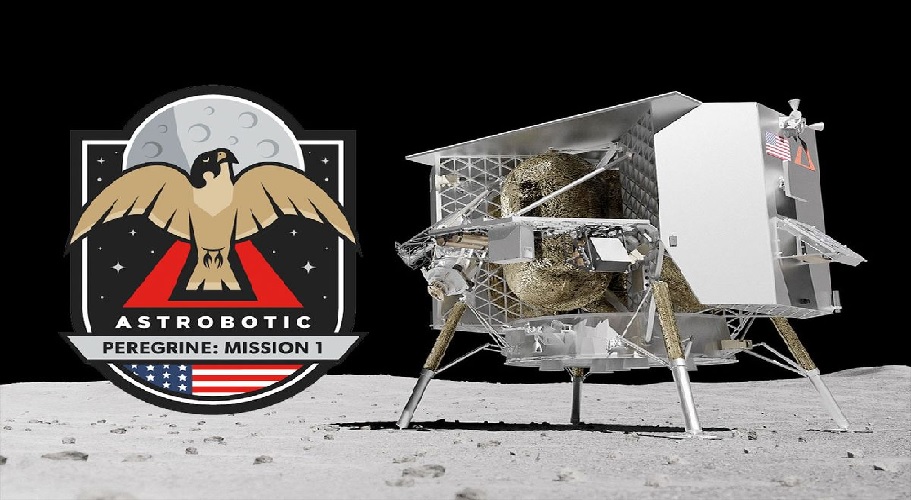Private Peregrine Moon Lander Suffers 'Critical' Fuel Loss After Launch, Mission at Risk

Space news ,World :- Astrobotic's Peregrine lander had a problem in space and might not win the private moon race. The issue happened in its propulsion system on January 8, just after it was sent into space by United Launch Alliance's new Vulcan Centaur rocket. This issue might stop Peregrine from going to the moon as planned.
Astrobotic, based in Pittsburgh, shared the update on X (formerly known as Twitter): "Unfortunately, it appears the failure within the propulsion system is causing a critical loss of propellant. The team is working to try and stabilize this loss, but given the situation, we have prioritized maximizing the science and data we can capture. We are currently assessing what alternative mission profiles may be feasible at this time."
Peregrine's launch was a significant moment in space travel. It marked the successful debut of the Vulcan Centaur, replacing ULA's Atlas V and Delta rockets. This launch was supposed to open a new era of private moon exploration.
Peregrine was part of NASA's Commercial Lunar Payload Services (CLPS) program, putting agency science payloads on private robotic moon crafts. Five NASA payloads, including a radiation detector and spectrometers, were on this flight. NASA aims to use private spacecraft for lunar research quickly and cost-effectively to prepare for crewed missions under its Artemis program.
However, NASA acknowledges that CLPS missions are high-risk. Joel Kearns from NASA's Science Mission Directorate stated, "Each success and setback are opportunities to learn and grow."
Peregrine was carrying 20 payloads, including Mexico's first lunar probes and a memorial capsule from Celestis. The inclusion of human remains in the memorial capsule sparked objections from the Navajo Nation, as it's considered sacred.
Celestis also placed a separate memorial payload on Vulcan Centaur's upper stage, called Enterprise. It carries cremated remains of "Star Trek" icons and the DNA of notable people, including former U.S. presidents.
The next private moon lander in NASA's CLPS program is Nova-C, built by Intuitive Machines. It is scheduled to launch in mid-February atop a SpaceX Falcon 9 rocket and land near the moon's south pole shortly afterward.


